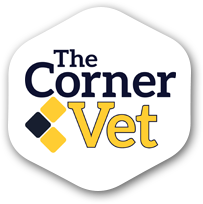Does your dog get nervous at the vet? If so, he’s not alone. Most of our canine patients would probably prefer a trip to a park or drive-thru over coming into the clinic. Although we do everything possible to make appointments easy for our furry pals, we understand that the strange smells and environment can make pups nervous. There are a few things you can do to help your beloved pet’s appointments go smoothly. A Bellaire, TX vet offers some advice on taking Fido to the vet in this article.
Walk/Play Beforehand
Dogs are always calmer after they’ve burned off their excess energy. Make sure Fido gets some activity in before his appointment. A vigorous walk may do the trick. A fun play session may also help. Toss a ball or Frisbee for your fuzzy friend, or take him to a park.
Ask All The Questions
Your vet can be a wonderful source of advice and insight as to your pup’s specific care needs. Don’t be afraid to ask questions! You may want to ask if your furry best friend is at risk of any specific health conditions, perhaps due to his breed. You can also get some professional tips on Fido’s diet or exercise needs. Do you sometimes think of questions after you get home? Use an app or notepad to jot things down.
Don’t Wait And See
Your canine friend can’t tell if something is wrong, so it’s important to keep an eye out for warning signs. If you notice something off, contact your vet immediately. Fido could already be quite ill before you notice anything is wrong! Regular check-ups and vaccinations are key to maintaining your pet’s health; find out more about our ‘Veterinary Wellness & Pet Vaccinations’ services.
Find Out What To Bring/Note
When you make the appointment, ask if there’s anything you should bring. For some exams, for instance, your vet may require a stool sample. Or, they may want to know what kind of food or treats Fido is eating.
Use Calming Products
At the end of the day, some dogs are simply calmer than others. If Fido gets extremely nervous, ask your vet about pet-calming products.
Make It Fun
After Fido’s appointment, indulge him a bit. Take your canine buddy to a park, pet store, or drive through, and get that tail going again. Remember, healthy pets are happy pets!
Our Advice on Taking Fido To The Vet in 2024
Why do most dogs feel nervous about visiting the vet?
Most dogs feel nervous about visiting the vet due to unfamiliar smells, sounds, and sights they encounter in the clinic environment. These novel stimuli can trigger anxiety and fear because dogs are creatures of habit and prefer the comfort of their known surroundings. Additionally, past experiences at the vet, including receiving vaccinations or undergoing procedures, can lead to the association of the vet’s office with discomfort or stress. The presence of other animals, who may also be anxious or emit distress signals, can further heighten their nervousness.
What should you do if you notice something off with your dog’s health?
If you notice something off with your dog’s health, it’s crucial to contact your veterinarian promptly. Early detection and intervention can be vital to managing and treating potential health issues. Describe the symptoms and any changes in behavior, appetite, or activity levels to your vet. They may advise you to monitor the situation for a short period or recommend bringing your dog in for an examination. Always err on the side of caution; it’s better to consult a professional than to wait and see if symptoms worsen.
What specific items or information might you need to bring to a vet appointment?
For a vet appointment, it’s essential to bring any relevant medical records, including vaccination history and any previous health issues or treatments your dog has had. If it’s a first visit or you’re seeing a new vet, bring records from previous clinics. Also, bring a fresh stool sample if requested, as this can help in diagnosing parasites or digestive issues. Note any specific behaviors, symptoms, or dietary changes observed, as these details can aid in a more accurate diagnosis. Lastly, remember your dog’s leash or carrier for their safety.
What are some ways to make a vet visit a more positive experience for your dog?
To make a vet visit more positive for your dog, start with positive associations at home by rewarding them with treats and praise when simulating aspects of a vet exam. Use calming pheromone sprays or collars to reduce anxiety. Bring their favorite toy or blanket for comfort. Schedule visits at less busy times to minimize stress from other animals. Consider practicing car rides if your dog is anxious about traveling. After the visit, reward your dog with a fun activity or treat to create a positive end to the experience.
What are some enjoyable activities to do with your dog after a vet appointment?
After a vet appointment, engaging in enjoyable activities can help lift your dog’s spirits. Consider taking a leisurely walk in a favorite park or exploring a new trail, offering an opportunity for relaxation and mental stimulation. Playing with a favorite toy or engaging in a fun game of fetch can also be a great way to bond and turn the day around. For a more laid-back experience, a visit to a pet-friendly café or simply spending quality time together at home with extra cuddles and treats can make your dog feel loved and reassured. Celebrating the bond you share with Fido is crucial, especially after stressful events like vet visits. Learn how to make ‘Hug Your Dog Day‘ special with our fun ideas and activities.
Do you need to make an appointment for your pooch? Contact us, your Bellaire, TX pet clinic, today!
